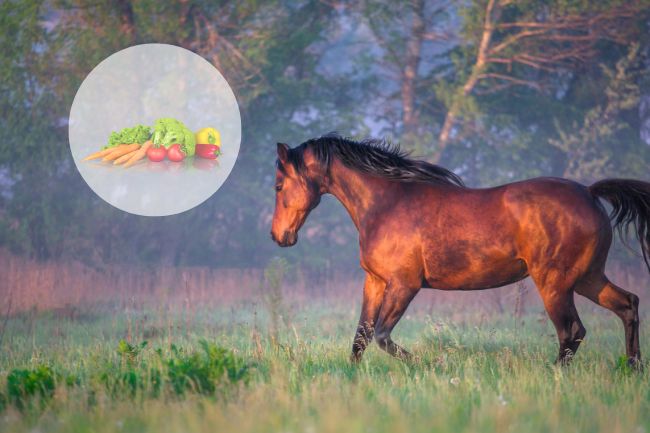Can horses eat candy? Ensure the health and well-being of your equine companion by understanding the risks associated with feeding candy. Opt for safe, nutritious alternatives that promote their overall vitality.

1. Can horses eat candy?
Horses should not be fed candy as it can be harmful to their health. Candy is high in sugar and can lead to digestive issues, weight gain, and even tooth decay in horses. It’s essential to prioritize their natural diet and provide them with suitable treats and nutritionally balanced meals.
2.Exploring the Safety Concerns
2.1. Digestive System Sensitivity: Exploring the Impact of Candy on Horses
- Overview of a Horse’s Digestive System
In this subtopic, we provide an overview of a horse’s digestive system, emphasizing its unique characteristics and sensitivity to certain types of foods. We explain the importance of maintaining a balanced and appropriate diet for optimal digestion and overall health.
- Potential Challenges with Candy Consumption
Here, we delve into the specific challenges that arise when horses consume candy. We discuss how the high sugar content and artificial ingredients in candy can disrupt the natural balance of a horse’s digestive system. We highlight the risks of overloading the digestive system with excessive sugar and the potential impact on nutrient absorption.
2.2. Health Risks and Adverse Effects of Feeding Candy to Horses
- Sugar Overload and Insulin Response
This subtopic focuses on the health risks associated with feeding candy to horses, particularly the potential for sugar overload. We explain how the equine body responds to high sugar intake and the subsequent insulin response. We highlight the increased risk of conditions like insulin resistance and laminitis that can arise from consistent high-sugar feeding.
- Dental Issues and Choking Hazards
Here, we address the dental concerns associated with feeding candy to horses. We discuss how the sticky nature of some candies can adhere to teeth, leading to dental decay and potential long-term damage. Additionally, we emphasize the importance of avoiding candies that present choking hazards due to their size, shape, or hard texture.
- Allergic Reactions and Sensitivities
This subtopic explores the possibility of horses developing allergies or sensitivities to certain candy ingredients. We explain how horses may react adversely to artificial flavors, preservatives, or other additives commonly found in candies. We highlight the signs and symptoms of allergic reactions and stress the importance of monitoring horses for any adverse responses.
2.3. Behavioral Effects and Unwanted Consequences
- Hyperactivity and Agitation
In this subtopic, we discuss the potential behavioral effects of feeding candy to horses. We explain that the high sugar content in candy can lead to an increase in energy levels, causing some horses to become hyperactive and agitated. We highlight the importance of maintaining a balanced diet to promote a calm and balanced temperament in horses.
- Reinforcement of Bad Habits or Misbehavior
Here, we explore the possibility of feeding candy reinforcing bad habits or contributing to misbehavior in horses. We explain that when horses are given treats like candy, they may start associating certain behaviors, such as begging or nipping, with receiving treats. This can lead to the development of undesirable habits and make it challenging to maintain appropriate behavior during handling and training sessions.

3. Safe Alternatives: Healthier Treat Options for Horses
3.1. Equine-Friendly Treats: Nourishing and Safe Choices
In this section, we present safe and healthier alternatives to feeding candy to horses. We emphasize the importance of choosing treats that provide nourishment while minimizing potential health risks. We discuss two main categories of equine-friendly treats:
- Natural Treats: Fruits, Vegetables, and Herbs
Here, we explore a variety of natural treats that are suitable for horses. We highlight fruits, such as apples, carrots, and watermelon, which offer nutritional benefits and are generally safe for equine consumption. We also discuss vegetables like celery and squash, as well as herbs like mint or rosemary, which can add flavor and enrichment to a horse’s diet.
- Commercially Available Horse Treats
In this subtopic, we discuss commercially available horse treats that are specifically formulated with equine dietary needs in mind. We provide information on reputable brands and discuss factors to consider when choosing commercially prepared treats. We emphasize the importance of reading labels to ensure the treats are made with high-quality ingredients and meet nutritional requirements.
3.2. Homemade Treat Recipes: Creating Delights for Your Equine Companion
Here, we provide horse owners with a selection of homemade treat recipes that are safe, nutritious, and enjoyable for horses. We offer step-by-step instructions for creating treats using simple ingredients commonly found in the kitchen. The recipes include options such as carrot oat bites, apple cinnamon cookies, and peppermint molasses treats, allowing horse owners to personalize their equine companion’s treats while ensuring their nutritional value.
4. Feeding Guidelines and Best Practices
4.1. Moderation and Portion Control for Treats
This subsection emphasizes the importance of moderation and portion control when feeding treats to horses. We discuss the recommended amount of treats based on a horse’s size and activity level. We also provide tips on dividing treats into smaller portions to prevent overconsumption of sugary snacks.
4.2. Frequency of Treat Feeding
Here, we address the ideal frequency of treat feeding for horses. We discuss the balance between providing occasional treats as rewards and maintaining a primarily balanced diet. We highlight the importance of focusing on the horse’s overall nutritional needs and ensuring that treats do not exceed a certain percentage of their daily caloric intake.
4.3. Recommended Alternatives for Rewarding Horses
In this subtopic, we suggest alternative methods for rewarding horses without relying solely on treats. We explore the benefits of positive reinforcement techniques, such as praise, scratches, or gentle rubs, as effective ways to reward good behavior. We also discuss the importance of developing a strong bond with the horse through trust-based training methods.
5. Frequently Asked Questions (FAQs) about Can Horses Eat Candy?
5.1. Can Horses Eat Specific Types of Candy?
We address common inquiries regarding specific types of candy and whether they are safe for equine consumption. We provide insights into popular candies, their ingredients, and potential risks associated with them.
5.2. What Are the Signs of an Allergic Reaction in Horses to Candy?
This FAQ addresses the signs and symptoms of allergic reactions in horses when consuming candy or other treats. We provide information on common allergic reactions, such as skin irritations, respiratory distress, or digestive issues, and emphasize the importance of seeking veterinary assistance if such reactions occur.
5.3. How Does Feeding Candy Affect a Horse’s Behavior?
This question delves into the behavioral impact of feeding candy to horses. We discuss the potential effects of sugar on their energy levels, hyperactivity, and changes in temperament. We also provide insights into how excessive sugar intake may contribute to unwanted behavior patterns.
5.4. Are There Any Candy Ingredients That Are Toxic to Horses?
Here, we address the potential toxicity of specific candy ingredients for horses. We highlight ingredients that can be harmful, such as chocolate, artificial sweeteners, or high levels of sugar, and explain the risks associated with their ingestion.
5.5. Can Certain Horse Breeds Handle Candy Better Than Others?
This FAQ explores the individual differences among horse breeds regarding their tolerance for candy or sugary treats. We discuss factors such as metabolism, sensitivity to sugar, and the overall health conditions of different horse breeds.
By incorporating feeding guidelines, best practices, and addressing frequently asked questions related to “can horses eat candy,” this section provides comprehensive information to fulfill the user’s search intent. It offers guidance on responsible treat feeding, potential risks, and considerations related to specific types of candy, allergies, behavior, and breed-specific factors.
In conclusion, it’s best to avoid feeding candy to horses due to potential health risks. Prioritize their health and nutrition by choosing appropriate treats and consulting with a veterinarian for guidance on their diet. We hope the article “can horses eat candy” on Baolamdep.com provides you with valuable information.
